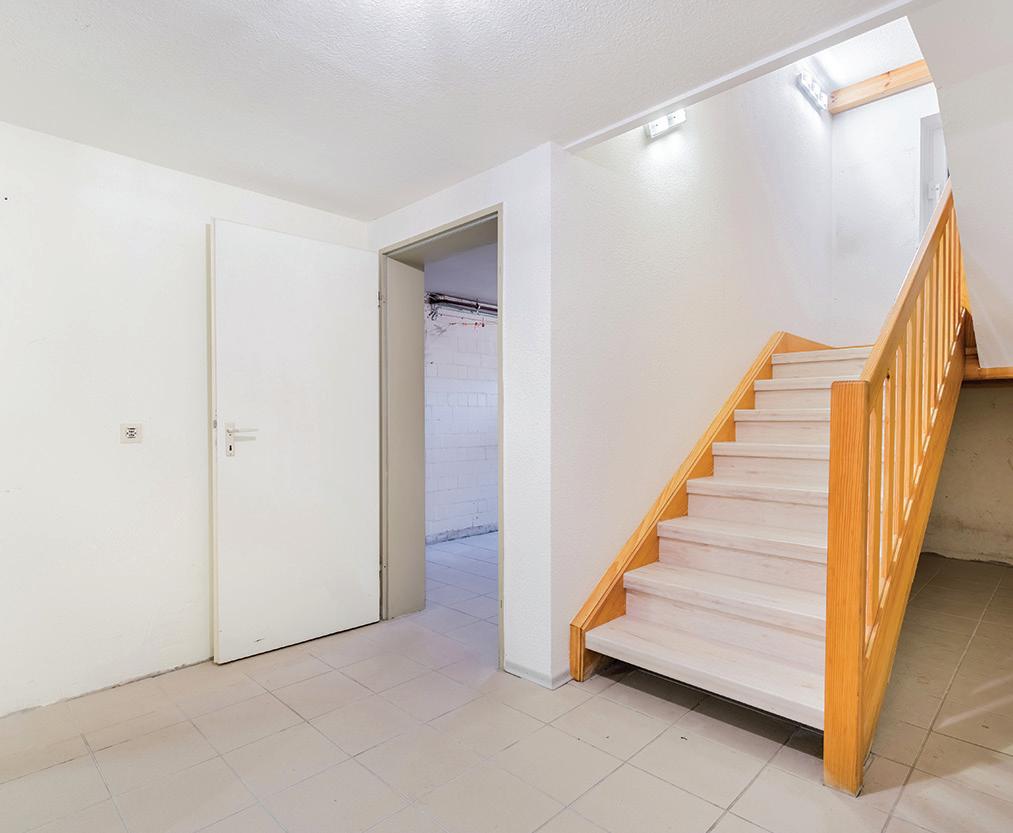






















Thenumber of professionals working re motely skyrocketed in 2020, when busi nesses were forced to close their offic es in an effort to slow the spread of the COVID-19 virus. As the world transitions from the pandemic phase to an endemic phase, many office workers also are transitioning back to their offices.
A recent survey from the Pew Research Cen ter found that 59 percent of workers in the Unit ed States are now working from home all or most of the time, while 22 percent are rarely or never working from home. In 2020, 70 percent of work ers were working from home all or most of the time, while 17 percent rarely or never worked from home. Those figures reflect that work life, albeit gradually, is returning to pre-pandemic norms.

As individuals find themselves going back to the office with increased frequency, they might be wondering what to do with their home offices. If space inside a home is at a premium, then repurpos ing a home office into a space that can be used more frequently is a great way to make better use of the existing square footage.
As professionals return to their offices with greater frequency, they can transform their offices into spaces they’re likely to use more often.
Perhaps the easiest thing to do with a home office that is no longer needed is to return the room to its pre-pandemic state. Because the shift to remote work was so sudden, many homeowners were forced to turn washrooms, breakfast nooks or areas of their basements into home offices. Returning those spaces to their initial functions can make a home feel less cluttered and add more room for residents to relax and get around.
Many homeowners converted a spare bedroom into a home office during the pandemic. In such instances, guest beds and other furni ture might have been moved into storage or even sold or discarded. Either way, that means the office was cleared of bedroom furniture. Now that the room no longer needs to be an office and now that homeowners have made due without the extra bedroom, the room can be converted into an entertainment area. Swap out the desk for
a foldout couch that can still accommodate overnight guests when necessary. Then mount a flatscreen television on the wall and utilize the room as a gaming room for kids or a film room/man cave for mom or dad.
The pandemic separated families, as people living in different households were advised to avoid gatherings to stop the spread of the virus. Individuals with aging parents may have felt particularly heartbroken by this forced separation, especially if their elderly par ents were living in nursing homes that were stretched thin by staff shortages and other challenges. In the aftermath of the pandemic phase, families may want to invite aging relatives to live with them. Home offices can be repurposed into in-law suites so aging parents don’t have to confront the isolation and loneliness many felt during the height of the pandemic.

Individualswho don’t live near the equator or in another warm climate know that winter will rear its chilly head this year. Cold temperatures and snowy conditions may be excellent for skiing and sledding, but gardeners recog nize these conditions are not ideal for their plants.
The inevitable slowing of activity in the garden during fall marks a time to shift at tention from constant plant care to prepar ing the landscape for next season. It may be tempting to simply let Mother Nature take over, but a little pre-winter TLC can ensure gardens make it through winter unscathed.
Fall and winter still provide opportu nities to spend time in the garden. At this point in the year, gardeners can prepare landscapes for the next season.
Decomposing organic material is the basis for compost and other fertilizers. However, vegetable plants that are left to sit can lead to decay in the garden. Decaying plants can serve as hosts for pest populations and diseases. Rotting vegetables also can drop unwanted seeds into the soil, which eventually can strip nutrients that normally would go to next year’s crops.
Ornamental plants and perennials can be cut back in fall. Cut down stalks and remove leaves.

The gardening resource This Is My Garden recommends planting a cover crop to set the stage for a successful spring. A cover crop protects the soil and can return nutrients to it. When the soil is bare during winter, weed seeds can easily blow in and lie in wait , ulti mately becoming a problem during the ensuing year. Cover crops can include clover or field peas, which will increase the levels of available nitrogen.
Fall is a perfect time to add soil amendments, such as manure and compost. These fertilizers will add nutrients and break down gradually, enriching the soil over the winter.
Gardeners may have added mulch around shrubs and other ar eas of the landscape early in the season because it is attractive. But mulch also does much to reduce water loss and protect the soil from erosion. It may inhibit weed growth as well. Replacing mulch when the mercury drops can insulate the soil, which helps to regu late soil temperature. A thick layer of mulch around root vegetables left in the garden can offer protection against hard frosts.
Divide plant bulbs and plant them where you want flowers like daffodils and tulips to grow in the spring.
Wait until plants are dormant to prune them and adjust their shape. Most shrubs and trees should be pruned in late winter, right before new growth.
Bring delicate plants into a sheltered area, such as a greenhouse or indoor garage, so they can continue to thrive during the winter.

Afully finished and functional basement is a dream for many homeowners. Such a space, when completed, can serve as an entertainment space, a man cave, an art ist’s studio, or any number of additional functions.
Despite their usefulness, finished basements are something of a rarity. In an analysis of data from the U.S. Census Bureau’s Survey of Construc tion, the National Association of Home Builders® found that only around 24 percent of single-family homes built in 2018 have basements. Homeown ers who do not currently have a finished basement but are considering such a project can approach the remodel with a few key factors in mind. Care ful consideration of these factors can ensure the project is budget-friendly and worthy of home owners’ investments.
Finished basements are valuable spaces. Home owners who want to finish or remodel their base ments should consider a host of factors before be ginning the renovation.

Conventional wisdom among home renovation and real estate experts suggests that a basement remodel is best if done to satisfy current inhabitants and not necessarily to appeal to prospective buyers once the home is put up for sale. Remodeling magazine re ports that a midrange basement remodel costing around $70,000 will provide a return of around $49,000 (or 70 percent) at resale. Though that’s not a poor return on investment, homeowners who are remodeling a basement solely for the potential ROI at resale can find other projects that provide a greater return.
The foundation of the home must garner ample consideration before beginning a basement remodel. Certain foundation issues, such as soft concrete, cracked or curved outside walls and cracks in the flooring, are indicative of significant issues with the foundation. These issues can be costly to address, and they must be remedied before the basement remodel can begin.
Some homeowners may have bought their homes with partially
finished basements or even finished areas that they simply want to remodel. In such instances, a pre-remodel inspection from a licensed home inspector can save homeowners lots of money and heartache over the long haul. Partially finished or even aging finished basements might not have been renovated in adherence to codes, which could lead to costly violations down the road. An inspection in advance of a remodel can give homeowners an idea of what they will need to do to bring the basement up to code. Local officials also can provide a list of necessary permits and a detailed description of requirements to ensure the remodeled basement adheres to code.
Soil surrounding the home should be tested prior to beginning the project. Radon is an odorless gas found in soil that the U.S. Environmental Protection Agency notes can increase individuals’ risk for lung cancer. Radon can seep into basements and increase that risk even further if it is present at elevated levels in the soil surrounding a home. Radon tests are simple and inexpensive, and no basement remodel project should begin without first conducting such a test.







